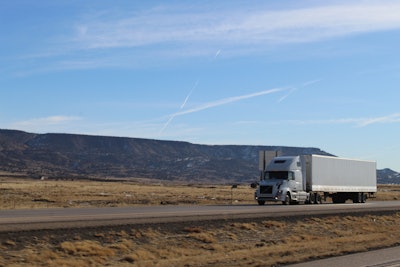
The headlines are grim and surreal, like something out of a strange, apocalyptic movie.
A global pandemic brought on by the novel coronavirus is shutting down businesses, schools, sporting events and trade shows and—as of today—causing the DOW to sink below 20,000.
But it’s not shutting down life. Far from it. Thanks to the men and women at trucking companies across the country, vital supplies are moving out day and night and probably in record numbers.
Just this afternoon, President Donald Trump evoked the Defense Production Act which empowers the U.S. to ensure that private companies can crank up production and distribution of invaluable emergency supplies and equipment. This means much more masks, ventilators and respirators will get to the places that need them the most. And it’s trucks that will get them there. A whole lot of trucks.
The Defense Production Act will also expand hospital capacity—a critical move considering that the terrible alternative of not having enough patient beds and equipment will leave hospital staff with making horrible decisions of who gets to live or die. It’s a tragedy that’s currently unfolding in Italy where the coronavirus continues to spread.
Hopefully, we’ll avoid the same fate here in the U.S. as trucks across the country move in greater numbers to bring us food, supplies and building materials to house more of our sick. It certainly looks like trucks will be needed more now than at any other point in history.
To help in the effort, the U.S. DOT announced last Friday that it had suspended hours of service regulations for any interstate truck driver or bus driver hauling loads or people related to the response of the COVID-19 coronavirus outbreak.
Just what does the Defense Production Act have in store for our nation’s carriers? We’re not entirely sure at this point, but we have absolute confidence that they will rise to the challenge at a time when the American people need them the most.









